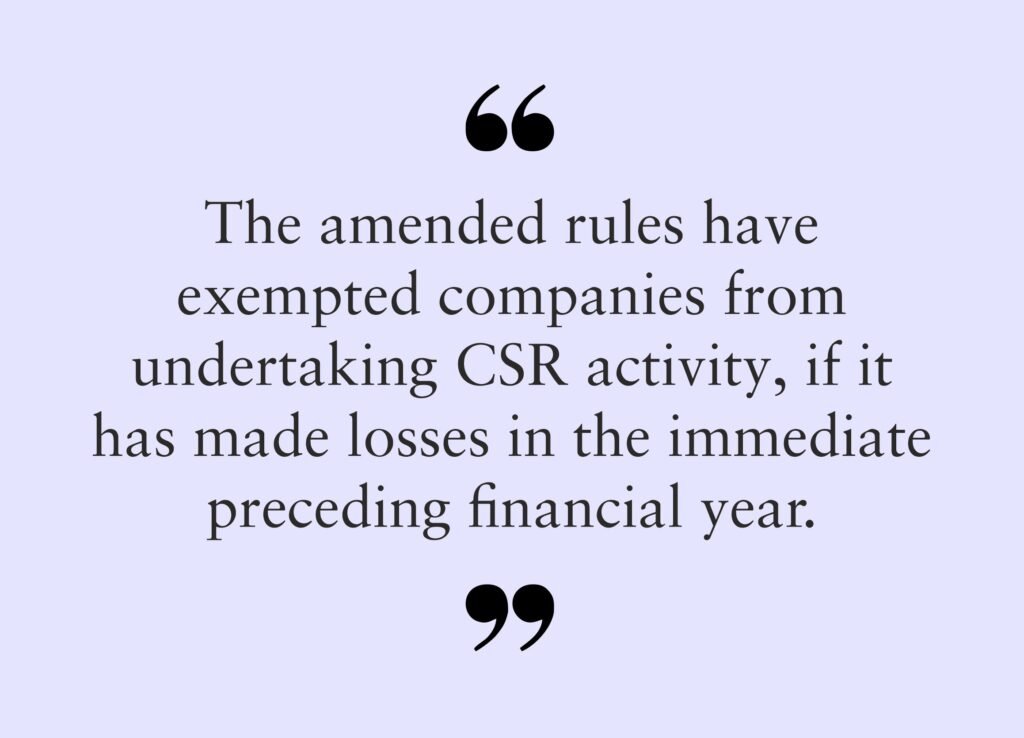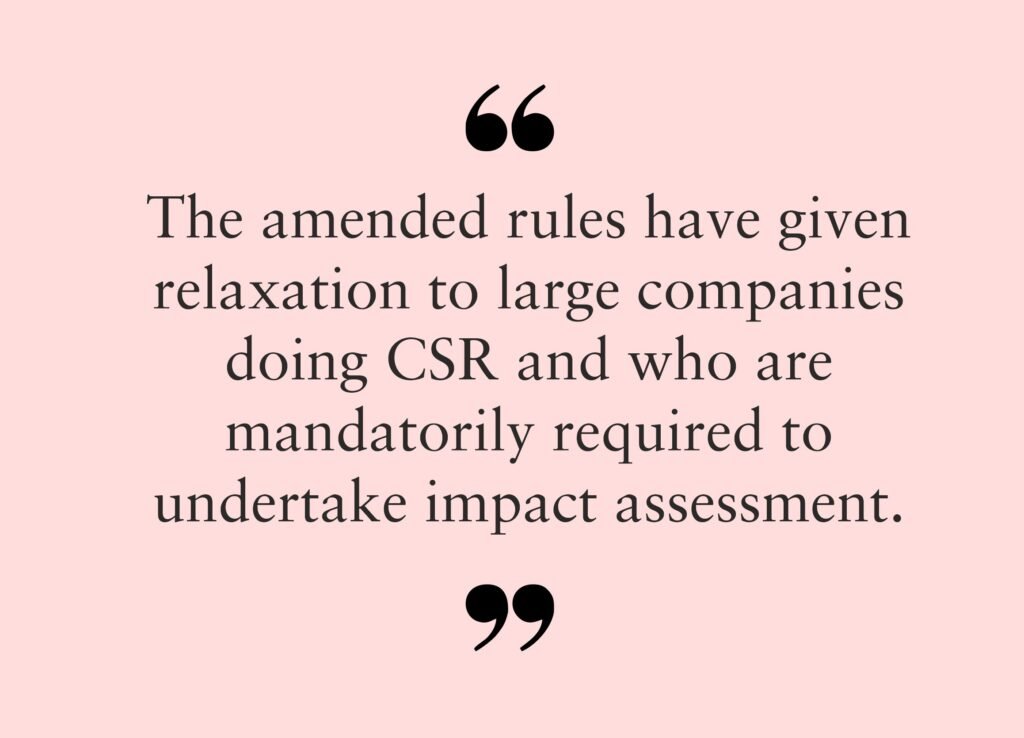Prior to these amended rules, companies having losses in the immediately preceding financial year, had to undertake CSR activity in the current financial year
By Rusen Kumar
New Delhi: India’s Ministry of Corporate Affairs (MCA) has amended the CSR rules by relaxing certain provisions while giving more impetus to impact assessment for companies falling under the CSR ambit.
The Corporate Affairs Ministry (MCA) has taken various measures to give a further boost to CSR spending by business group. There is clarity on the entities through which CSR obligations could be fulfilled, and the Ministry has also revised the existing cap on the fees that could be paid by corporates for impact assessment.
The new amendment has inserted a provision under rule 3 sub-rule (1) stating, “Provided further that a company having any amount in its Unspent Corporate Social Responsibility Account as per sub-section (6) of section 135 shall constitute a CSR Committee and comply with the provisions contained in sub-sections (2) to (6) of the said section.”
The government has asked companies having any amount in their unspent corporate social responsibility accounts to set up a CSR committee.
Rule 3 pertains to applicability of CSR provisions. For instance, sub rule (1) of rule 3 says, CSR would be applicable even to foreign companies who cross the threshold of network, turnover or profits. In the same rule there was rule 3(2) which used to say that you have to look back 3 years to ascertain whether CSR is applicable or not.
That rule 3(2) asking to look back for 3 years is not applicable now, according to experts.
In rule 8, in sub-rule (3), in clause (c),- (i) for the words “five percent”, the words “two percent.” shall be substituted, the notification said.

As a result, the clause (c) will now read as a Company undertaking impact assessment may book the expenditure towards Corporate Social Responsibility for that financial year, which shall not exceed two percent instead of five percent of the total CSR expenditure for that financial year or fifty lakh rupees, whichever is higher instead of whichever is less.
“Impetus on impact assessment will bring accountability on the organisation to ensure money is spend for the right cause in the right manner and achieved the targated goal. In the current scenario there is no such norms or Framework for the assessment of social impact and there are no trained social auditors available in the country. It will take few more years to regularise this process.”, said Vivek Prakash, Vice President and Head ‑ CSR, Jubilant Ingrevia
Reacting to the amended CSR rules, Makarand Joshi, founding partner, MMJC and Associates – a corporate compliance firm, said, “The amended rules have given relaxation to large companies doing CSR and who are mandatorily required to undertake impact assessment. Amended rules now allow up to 2% of CSR obligation or Rs. 50 lacs whichever is higher to be spent on Impact Assessment. This expenditure on impact study will be part of CSR obligation.”
For example, if CSR obligation of any company is Rs.100 crore in a year earlier only Rs.50 lac was allowed to be spent on impact Assessment which now will be allowed up to Rs.2 crore, Joshi said.

The quantum of CSR funds for India Inc is in the range of Rs 25,000 crore annually and proper Assessment of impact done by these CSR activities in sync with National Priority. The amended rules have also exempted companies from undertaking CSR activity, if it has made losses in the immediate preceding financial year, he said.
“However, those companies will have to spend the carry forward or unspent CSR obligation of the previous years. Prior to these amended rules, companies having losses in the immediately preceding financial year, had to undertake CSR activity in the current financial year, if it had reported profits of over Rs 5 crore in any of the previous three financial years,” Joshi said.
Abhishek Ranjan, Director & Global Head – Sustainability of Brillio Technology stated that the objective of bringing amendments to the CSR law is to boost transparency, focus on impact and sustainability of CSR activities.
Kumod Kumar, CEO, Centre for CSR Studies, CIMP said, “We should give exposure to the corporates so that they can do better. We need incentive-based CSR programmes. And these incentives should be based on social values. We should be more generous to society and people. The corporate must understand the basic and specific needs of human beings.”
In Brief
Companies making losses in the immediate preceding financial year will be exempted from undertaking corporate social responsibility (CSR) activity that year if they were eligible for CSR due to their net profit.
The government has asked companies having any amount in their unspent corporate social responsibility accounts to set up a CSR committee.
Download the CSR Amendment Notification
(India CSR)





